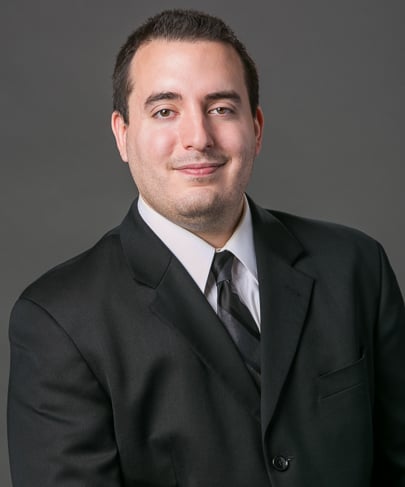Builders Beware: The Implied Warranty of Workmanship and Habitability Is Set in Stone
DOWNLOAD PDF- Alvarado, Andrew J. . Baxter, Todd A.
- Industry Alerts
Click “Subscribe Now” to get attorney insights on the latest developments in a range of services and industries.
To protect homebuyers, Arizona law provides for certain warranties to be included in every contract. The most significant of those warranties, the implied warranty of workmanship and habitability, requires builders to construct homes following industry standards to ensure they are free from defects and fit for habitation.
 The practical effect of that “implied” warranty is that even if it is not included in the parties’ contract, Arizona courts will insert it and hold the builder responsible for compliance. A builder cannot avoid that warranty by simply leaving it out of the contract.
The practical effect of that “implied” warranty is that even if it is not included in the parties’ contract, Arizona courts will insert it and hold the builder responsible for compliance. A builder cannot avoid that warranty by simply leaving it out of the contract.
Instead of leaving the warranty out of the contract altogether (which would not affect the “implied” warranties), some builders seek to limit their liability and obligations to buyers by negotiating for specific express warranties in the contract and disclaiming and waiving all other warranties. One of the primary arguments in support of that practice is that both parties benefit from that bargain: the buyer receives the protection of the express warranty, and the builder limits its liability. That practice may make sense in theory, but given the reality that buyers are typically less sophisticated and far less knowledgeable about construction practices than builders are, is it fair?
The Arizona Court of Appeals recently answered that question with a resounding “no,” holding that the implied warranty of workmanship and habitability cannot be waived even if the parties agree to do so in writing.
In Zambrano v. M & RC II, LLC, 49 Arizona Cases Digest 21, the home purchase agreement contained the following provision:
THE HOME BUILDER’S LIMITED WARRANTY REFERENCED ABOVE IS THE ONLY WARRANTY APPLICABLE TO THE PURCHASE OF THE PROPERTY. ALL OTHER EXPRESS OR IMPLIED WARRANTIES OF MERCHANTABILITY, FITNESS FOR A PARTICULAR PURPOSE, HABITABILITY AND WORKMANSHIP ARE HEREBY DISCLAIMED BY SELLER AND ITS AFFILIATES AND WAIVED BY BUYER, ANY IMPLIED WARRANTY THAT MAY EXIST DE[S]PITE THE ABOVE DISCLAIMER IS HERE-BY LIMITED.
The homebuyer not only signed the purchase agreement but also initialed that specific provision.
The express warranty also contained the following disclaimer:
WE make no housing merchant implied warranty of habitability or any other warranties, express or implied, in connection with the sales contract or the warrantied HOME, and all such warranties are excluded, except as expressly provided in this BUILDER’S LIMITED WARRANTY. There are no warranties which extend beyond the face of this BUILDER’S LIMITED WARRANTY.
The buyer subsequently sued the builder, alleging that because there were certain construction defects in the home, the builder had breached the implied warranty of workmanship and habitability. However, the builder argued that since the buyer had waived the implied warranty, it could not be held liable, and the buyer’s claim was dismissed.
The Arizona Court of Appeals disagreed and explained that although there is strong public policy in favor of allowing parties to freely contract, there is an even stronger policy in favor of protecting homebuyers in this state.
The Zambrano court established that “a new home buyer cannot waive – and a builder cannot disclaim – the implied warranty of workmanship and habitability. This prohibition precludes a waiver even when, as here, the builder gives an express warranty in consideration for the waiver.”
While other states still allow builders to provide for an express warranty in lieu of the implied warranties (and allow buyers to waive the same), Arizona law no longer allows that practice – the implied warranty of workmanship and habitability is set in stone. Accordingly, builders in Arizona should understand that those provisions in their current contracts are not enforceable and should remove them from their contracts moving forward.
For more information, contact Andrew Alvarado at aalvarado@dickinsonwright.com or 512-770-4225.
Related Practices
Contacts

Recent Insights
- April 16, 2025 In the News Matthew G. Koskinen Joins Dickinson Wright Ft. Lauderdale Office
- June 13, 2024 In the News Dickinson Wright Recognized in Legal 500 United States 2024 Edition
- May 13, 2024 In the News Jessica Franklin Joins Dickinson Wright Ft. Lauderdale Office
- April 11, 2024 In the News Jennifer Vaquerano Joins Dickinson Wright Ft. Lauderdale Office
- January 18, 2024 In the News Adam E. Richards Joins Dickinson Wright Ft. Lauderdale as a Member
- December 6, 2023 In the News Christopher Cornwall Named to Michigan Lawyers Weekly’s ‘Michigan’s Go To Lawyers Power List’
- November 27, 2023 In the News Anthony Wong Joins Dickinson Wright Ft. Lauderdale Office
- June 12, 2023 In the News Dickinson Wright Recognized in Legal 500 United States 2023 Edition
- March 8, 2023 In the News Christopher Cornwall Named a ‘Go To Lawyer’ for Construction Law by Michigan Lawyers Weekly

